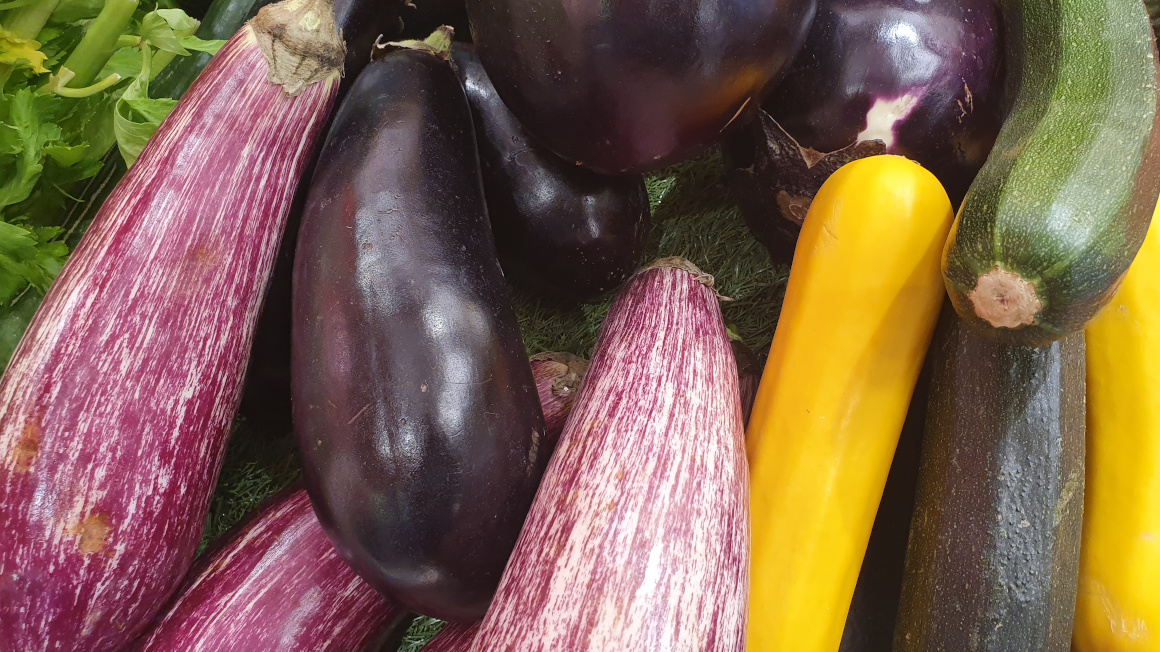Food system: Only growth is not enough
A combination of dietary change and emissions pricing would make the food system more sustainable, concludes a study by the Potsdam Institute.

How can our food system become more sustainable? This question is currently occupying many researchers. Eating less meat and more vegetables is just one way of protecting the environment and climate, as well as making agriculture more sustainable. Like other sectors of the economy, however, agriculture is geared to constant growth. For a long time, there have been voices arguing for an economy without growth, because this development is harmful to the environment. Researchers have now taken a closer look at these so-called "degrowth" approaches. Under the leadership of the Potsdam Institute for Climate Impact Research, a computer simulation was used to examine how reducing consumption and production and increasing efficiency could affect greenhouse gas emissions in the food sector.
Change food system from the ground up
About one-third of global greenhouse gas emissions come from the way land is farmed and food is produced. Curbing growth alone is not enough to make the food system more sustainable, according to the researchers. "If we allowed our system of food production and consumption to shrink instead of grow, the net result would not be that much benefit to the climate. Instead, we need to change this system itself from the ground up," says Potsdam researcher Benjamin Bodirsky and co-author of the study. One change would be to consume only what is actually needed, throw away less food and eat many more vegetables than animal products.
More efficiency through qualitative changes
"On the other hand, such a qualitative change means more efficiency, producing food in a more environmentally friendly way, for example, through more targeted fertilization and higher-yielding crops," Bodirsky explains. "In addition, if carbon were put a price on, that could incentivize farmers to produce with lower emissions, simply because fewer emissions then mean lower costs."
Simply curbing growth is not enough
As part of the study, the researchers had created scenarios for various degrowth approaches and fed them into a computer simulation for food and land systems to examine their effects. Here, they found that simply curbing growth in rich countries would not yield significant sustainability benefits. But other growth rates were not really sustainable either. Moreover, transferring income from rich to poorer countries would actually increase greenhouse gas emissions - because, according to the researchers, consumption of environmentally harmful food increases as countries move from low to middle income.
Consumption change plus emissions pricing brings effect
However, the combination of consumption changes plus efficiency gains through emissions pricing produced a very different picture. According to the researchers, this scenario would mean a healthy diet and lower greenhouse gas emissions, thus also reducing production inputs in agriculture. "So basically, it's not simply about less growth, but about different growth," sums up Hermann Lotze-Campen, co-author at the Potsdam Institute.
The team therefore concludes that only a combination of dietary change, emissions pricing and international income transfers can make food production and consumption emissions neutral by the end of this century, while providing a healthier diet for a growing global population.
However, it is also clear that if the costs for the environment are taken into account, food prices will rise slightly. This transformation would be at the expense of poorer people in particular. According to the researchers, the transformation would therefore have to be accompanied by a "well thought-out mix of intelligent tax systems, social compensation for emissions pricing and also international compensation payments".
bb


